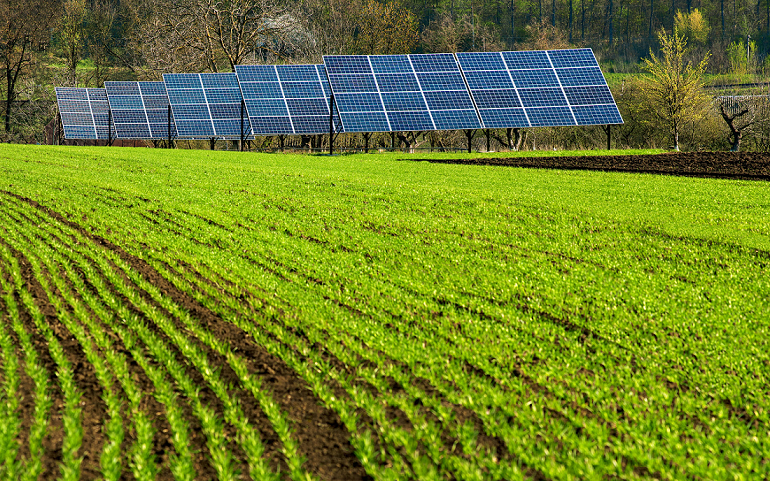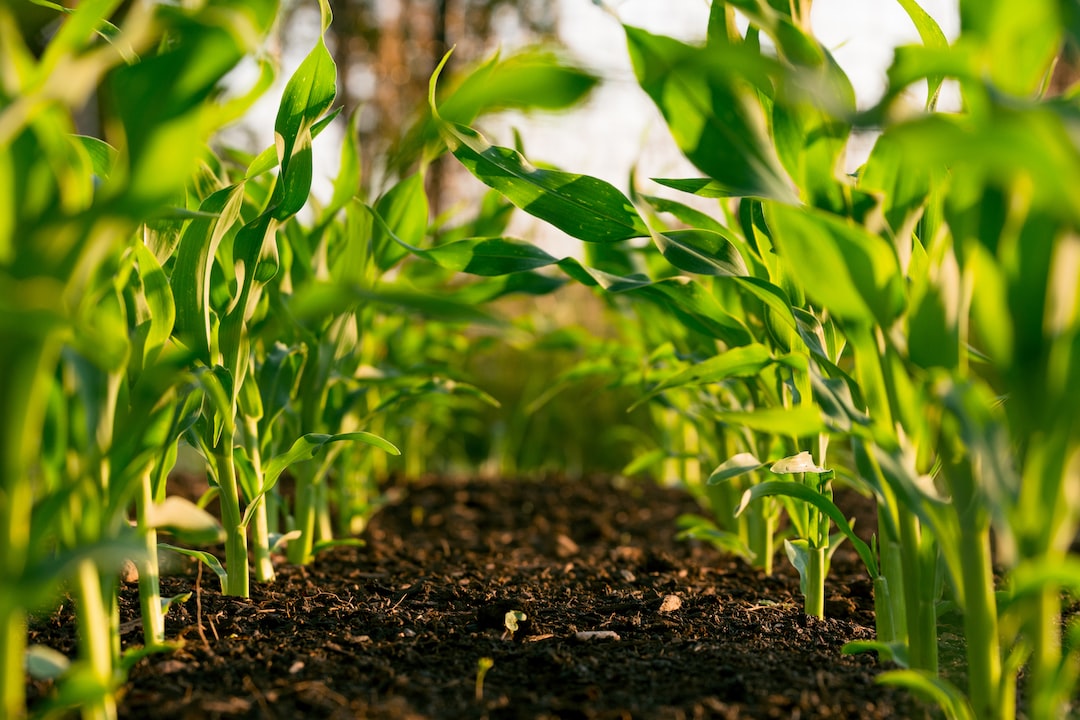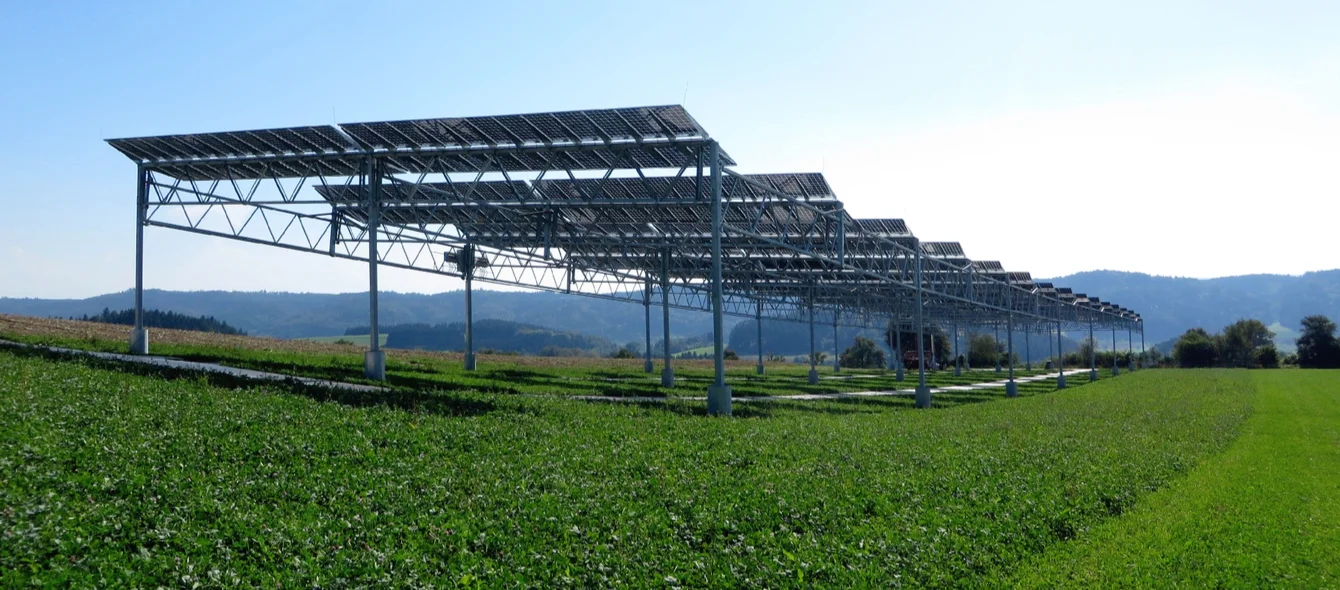Introduction
Food security is a pressing issue that affects billions of people worldwide. With the global population expected to reach nearly 10 billion by 2050, ensuring access to safe and nutritious food for all is essential. However, traditional farming methods heavily rely on fossil fuels and contribute to greenhouse gas emissions, exacerbating climate change and threatening food production. This is where solar energy comes in. Solar power offers a sustainable and renewable solution to address food security challenges. By harnessing the power of the sun, farmers can reduce their dependence on fossil fuels, lower operating costs, and increase agricultural productivity.

The importance of addressing food security in Nigeria
Nigeria is a country that faces significant challenges when it comes to food security. With a population of over 200 million people and a rapidly growing population rate, ensuring access to sufficient and nutritious food is crucial. However, the agricultural sector in Nigeria has been hampered by various factors, including inadequate infrastructure, limited access to modern farming technologies, and over-reliance on rainfed agriculture.
These challenges have led to food shortages, high food prices, and malnutrition among the population. Moreover, climate change and extreme weather events, such as droughts and floods, further exacerbate the food security situation in the country.
Addressing food security in Nigeria requires innovative solutions that are sustainable and environmentally friendly. This is where solar energy can play a transformative role. By utilizing solar power in agriculture, Nigeria can reduce its dependence on traditional farming methods and fossil fuels. Solar-powered irrigation systems can provide a reliable and cost-effective source of water for irrigation, even in areas with limited access to electricity. Solar-powered cold storage facilities can help reduce post-harvest losses and improve food storage and preservation. Additionally, solar energy can support the electrification of rural communities, improving access to modern farming technologies and increasing agricultural productivity.
Investing in solar energy for agriculture can have wide-ranging benefits for Nigeria. Not only can it help improve food production and reduce food prices, but it can also create job opportunities, enhance rural livelihoods, and contribute to sustainable development in the country.
The potential of solar energy in meeting food production needs
Solar energy has immense potential in meeting the food production needs of Nigeria. By harnessing the power of the sun, farmers can overcome the limitations imposed by traditional farming methods and improve agricultural output. One area where solar energy can make a significant difference is in irrigation. Nigeria’s agricultural sector heavily relies on rainfed agriculture, which is vulnerable to climate variability. Droughts can lead to crop failures, while excessive rainfall can cause flooding and damage crops. Solar-powered irrigation systems can provide a reliable and sustainable source of water for irrigation, regardless of weather conditions. This allows farmers to cultivate their land throughout the year, enhancing food production and reducing the risk of food shortages.
Solar energy can also address the challenge of post-harvest losses. In Nigeria, a significant amount of food is wasted due to inadequate storage facilities and poor preservation techniques. Solar-powered cold storage facilities can maintain the freshness and quality of perishable crops, reducing post-harvest losses and ensuring that food reaches consumers in optimal condition. This not only increases the availability of food but also reduces the economic burden on farmers and the overall food waste in the country.
Furthermore, solar energy can contribute to the electrification of rural communities and improve access to modern farming technologies. Many rural areas in Nigeria have limited or no access to electricity, limiting the adoption of innovative agricultural practices. Solar-powered solutions can provide decentralized and affordable electricity, powering machinery, equipment, and other devices necessary for efficient farming. This empowers farmers with the tools they need to increase productivity, process their harvests, and move up the agricultural value chain.

The potential of solar energy in meeting food production needs
Solar energy has immense potential in meeting the food production needs of Nigeria. By harnessing the power of the sun, farmers can overcome the limitations imposed by traditional farming methods and improve agricultural output.
One area where solar energy can make a significant difference is in irrigation. Nigeria’s agricultural sector heavily relies on rainfed agriculture, which is vulnerable to climate variability. Droughts can lead to crop failures, while excessive rainfall can cause flooding and damage crops. Solar-powered irrigation systems can provide a reliable and sustainable source of water for irrigation, regardless of weather conditions. This allows farmers to cultivate their land throughout the year, enhancing food production and reducing the risk of food shortages.
Solar energy can also address the challenge of post-harvest losses. In Nigeria, a significant amount of food is wasted due to inadequate storage facilities and poor preservation techniques. Solar-powered cold storage facilities can maintain the freshness and quality of perishable crops, reducing post-harvest losses and ensuring that food reaches consumers in optimal condition. This not only increases the availability of food but also reduces the economic burden on farmers and the overall food waste in the country.
Furthermore, solar energy can contribute to the electrification of rural communities and improve access to modern farming technologies. Many rural areas in Nigeria have limited or no access to electricity, limiting the adoption of innovative agricultural practices. Solar-powered solutions can provide decentralized and affordable electricity, powering machinery, equipment, and other devices necessary for efficient farming. This empowers farmers with the tools they need to increase productivity, process their harvests, and move up the agricultural value chain.
Solar energy solutions for sustainable agriculture
Solar energy offers a range of solutions for sustainable agriculture in Nigeria. Various initiatives have been implemented to harness the power of the sun and improve farming practices, ultimately addressing food security concerns.
One key application of solar energy in agriculture is through the use of solar-powered water pumping systems. These systems provide a reliable and cost-effective means of drawing water from wells or rivers for irrigation. By reducing reliance on traditional manual or diesel-powered pumps, farmers can significantly increase their productivity and reduce their operational costs. In addition, solar water pumping systems are environmentally friendly and sustainable, as they produce zero emissions and require minimal maintenance.
Another notable solar solution is the use of solar dryers for crop drying and processing. In many areas of Nigeria, farmers face challenges in effectively drying their produce, leading to quality deterioration and post-harvest losses. Solar dryers, which utilize the sun’s heat to remove moisture from crops, offer a practical and efficient way to overcome this issue. By utilizing solar dryers, farmers can preserve the quality of their crops, extend their shelf life, and enhance the value of their produce.
Solar energy can also be leveraged to enhance livestock farming practices. Solar-powered electric fences provide a reliable and affordable means of containing livestock and protecting them from predators. This technology allows farmers to graze their animals more efficiently and minimize the risk of livestock losses. Additionally, solar-powered water heaters can provide warm water for livestock during cold seasons, improving their overall health and productivity.
These are just a few examples of how solar energy can be applied in the agricultural sector. By adopting these and other solar solutions, Nigerian farmers can increase their productivity, reduce their operational costs, and mitigate the impact of climate change on their farming activities. In the next section, we will explore the success stories of Nigerian farmers who have embraced solar-powered agriculture and witnessed significant improvements in their yields and livelihoods.

Government initiatives and incentives for solar energy in agriculture
The Nigerian government recognises solar energy’s potential in addressing food security and has introduced several initiatives and incentives to encourage its adoption in the agricultural sector. These measures aim to support farmers in adopting solar-powered solutions, making them more accessible and affordable.
One such initiative is the provision of subsidies and grants for the installation of solar-powered irrigation systems. These subsidies can significantly reduce the upfront costs associated with transitioning to solar energy, making it more financially viable for farmers. Additionally, the government has partnered with financial institutions to provide low-interest loans specifically for the purchase and installation of solar-powered agriculture equipment.
Furthermore, the government has implemented training programs and workshops to educate farmers on sustainable farming practices and the benefits of solar energy. These programs equip farmers with the necessary knowledge and skills to effectively utilize solar-powered technologies in their agricultural activities.
To further incentivize the adoption of solar energy, the Nigerian government has implemented tax exemptions and other fiscal policies. These policies aim to reduce the financial burden on farmers and create a favourable environment for the growth of solar-powered agriculture.
By implementing these initiatives and incentives, the Nigerian government is actively supporting the sustainable development of the agricultural sector. Through the integration of solar energy, farmers can increase their productivity and resilience, ultimately contributing to improved food security in the country.

